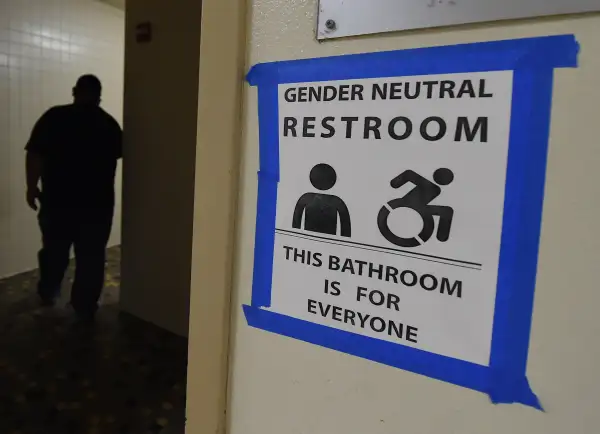What It Would Cost a Trans Person to Avoid Breaking North Carolina's Bathroom Law

North Carolina's government is digging its heels in on the reviled "Bathroom Bill," which mandates the use of the restroom that corresponds with a person's sex at birth, and is now suing the Federal government after it told the state it would lose funding if it didn't kill the bill, which the Justice Department said violated civil rights law.
Besides running contrary to civil rights and common sense, this bill would have wreaked havoc on the finances of transgender people excluded from restrooms.
The average commute in North Carolina is around 24 minutes, according to census data from its American Community Survey. Assuming an average speed of 35 miles per hour, this amounts to an average commute of 14 miles.
According to the IRS mileage reimbursement of $0.54 per mile, that would result in a $15 expense every time someone wanted to go to the facilities. It's 1:30 and I've already visited the men's room three times at work, so if a trans person had my normal water-drinking habit, they might be out $90 per day if they made six trips to the can, which is also just under three hours of driving time.
Bear in mind this is if you have an automobile. If you were taking an Uber from your workplace in Raleigh to your home in Clayton, say, you'd be out $14-20 per one way trip, which is $28 to $40 for a round trip.
This puts the low at $84 for three bathroom breaks and a high of $240 for six for people who don't own cars.
Of course, these figures don’t even get into the productivity costs employers would shoulder for workers ducking out on long bathroom breaks—or lost wages for hourly employees. Even two 56-minute bathroom breaks would be an expensive productivity hurdle for all.